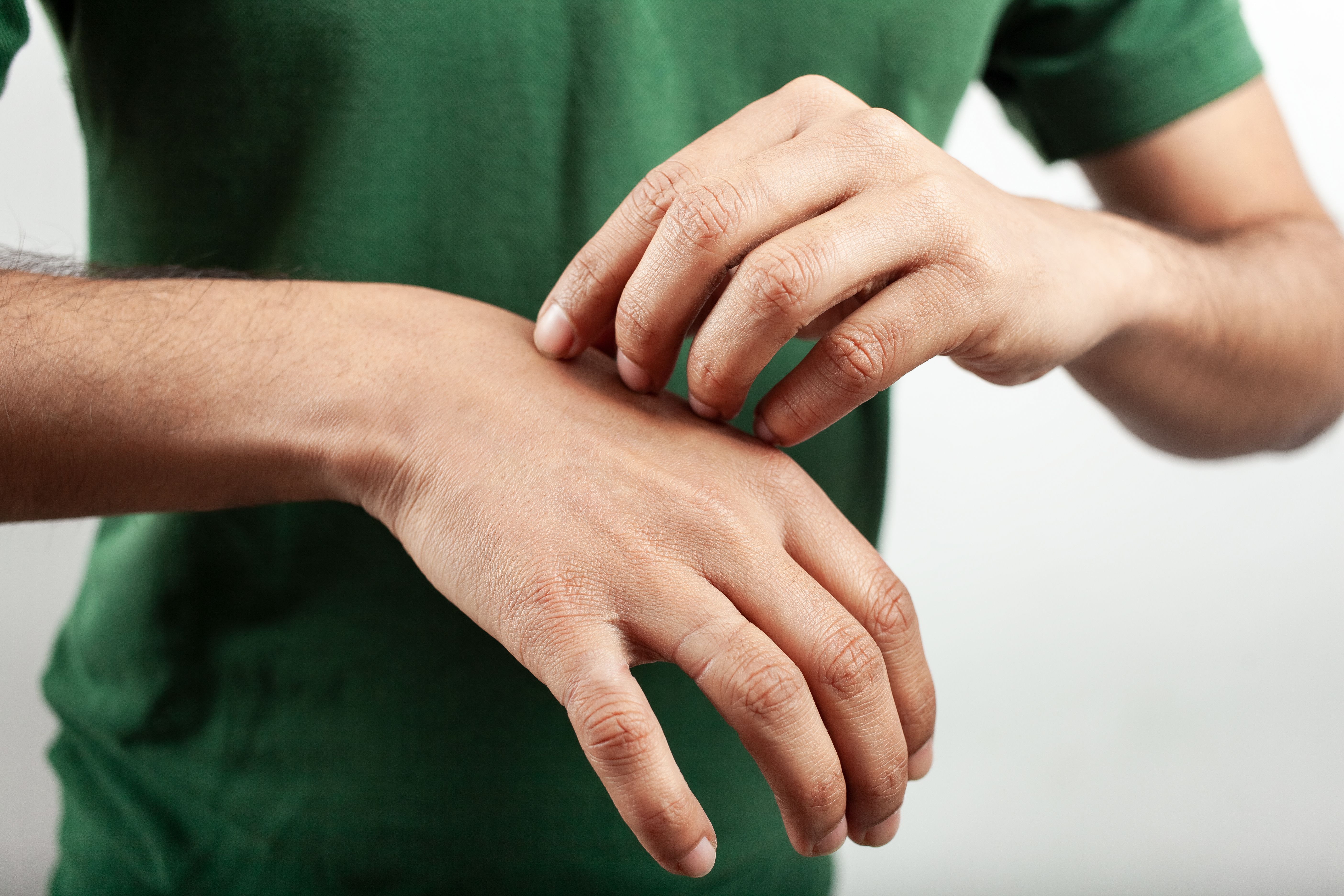Psoriasis Puzzles: 9 Hidden Triggers in Your Daily Routine
Psoriasis, a chronic autoimmune condition characterized by red, scaly patches on the skin, affects millions globally. While the exact cause remains elusive, various environmental, genetic, and lifestyle factors can exacerbate symptoms. Surprisingly, many of these triggers are embedded in our daily routines, often overlooked yet profoundly impactful. This article delves into nine such hidden aspects of everyday life that might be contributing to psoriasis flare-ups, offering insights that could guide sufferers toward more effective management of their condition. By understanding these subtle influences, individuals can better navigate their environments and potentially alleviate the severity of their symptoms.
The Impact of Stress and Emotional Well-being

Stress is a well-documented trigger for psoriasis, yet its pervasive presence in modern life often goes unnoticed. Emotional stress can provoke the immune system, leading to inflammation and subsequent flare-ups. The body's response to stress involves releasing chemicals like cortisol, which, in high amounts, can disrupt immune function and exacerbate psoriasis symptoms. Moreover, the psychological burden of living with a visible skin condition can itself be a source of stress, creating a vicious cycle. Techniques such as mindfulness, meditation, and cognitive-behavioral therapy have shown promise in breaking this cycle, offering a holistic approach to managing both stress and psoriasis.
The Role of Diet and Nutrition

What we eat can significantly influence psoriasis. Certain foods may trigger inflammation or immune responses that exacerbate the condition. Diets high in sugar, red meat, and dairy have been linked to increased flare-ups, while anti-inflammatory foods like omega-3-rich fish, fruits, and vegetables may help reduce symptoms. Gluten, a protein found in wheat and related grains, is another potential culprit for some individuals. Keeping a food diary can help identify specific triggers, allowing for a tailored dietary approach. Consulting with a nutritionist or dietitian can provide personalized guidance, ensuring nutritional needs are met while minimizing potential dietary triggers.
The Influence of Weather and Climate

Climate and weather conditions can have a profound impact on psoriasis symptoms. Cold, dry weather tends to exacerbate the condition by drying out the skin, whereas warm, humid environments can help keep skin hydrated. However, excessive sun exposure can also trigger flare-ups, as sunburn damages the skin and can lead to increased inflammation. Understanding how different weather conditions affect your skin can help in planning appropriate skin care routines and protective measures. Using a humidifier during winter months, applying sunscreen, and moisturizing regularly are simple steps that can mitigate the adverse effects of climate on psoriasis.
The Connection Between Smoking and Psoriasis

Smoking is not only detrimental to overall health but also a significant trigger for psoriasis. The toxins in cigarette smoke can promote inflammation and immune system dysregulation, both of which are central to psoriasis pathogenesis. Studies have shown that smokers with psoriasis tend to have more severe symptoms compared to non-smokers. Quitting smoking can be challenging, but it offers numerous health benefits, including potential improvement in psoriasis symptoms. Support groups, nicotine replacement therapies, and counseling can aid in the cessation process, ultimately contributing to better skin health and overall well-being.
Alcohol Consumption and Its Effects

Alcohol is another lifestyle factor that can exacerbate psoriasis. It can interfere with the effectiveness of treatments and increase the risk of liver damage, particularly when combined with certain psoriasis medications. Alcohol may also affect the immune system, leading to increased inflammation. Reducing or eliminating alcohol intake can lead to significant improvements in psoriasis symptoms for many individuals. Understanding personal limits and seeking support through programs like Alcoholics Anonymous can be beneficial. Moderation and mindful consumption, coupled with professional guidance, can aid in managing both alcohol intake and psoriasis.
The Hidden Dangers of Certain Medications

Some medications, while necessary for treating other conditions, can inadvertently trigger psoriasis flare-ups. Beta-blockers, lithium, and certain antimalarial drugs are known to exacerbate symptoms in some individuals. It's crucial for those with psoriasis to communicate openly with healthcare providers about all medications being taken. This allows for adjustments or alternatives that might pose less risk to skin health. Regular reviews of medication regimens, alongside medical advice, can help minimize potential triggers and maintain better control over psoriasis.
The Influence of Skin Injuries and Trauma

The Koebner phenomenon describes the occurrence of psoriasis lesions at the site of skin injuries such as cuts, scrapes, or sunburns. This response highlights the skin's sensitivity to trauma and the importance of protecting it from harm. Gentle skin care routines, avoiding harsh exfoliants, and taking precautions during activities that might lead to injury are essential strategies. Additionally, using protective gear and being mindful of potential hazards can help prevent trauma-induced flare-ups. Understanding this aspect of psoriasis can lead to more proactive and preventive skin care practices.
The Role of Sleep and Circadian Rhythms

Quality sleep is vital for overall health, and its disruption can worsen psoriasis. Poor sleep can elevate stress levels and weaken the immune system, both of which are detrimental to psoriasis management. Sleep disorders, such as insomnia or sleep apnea, may also contribute to more frequent flare-ups. Establishing a consistent sleep routine, creating a restful environment, and addressing sleep disorders with professional help can improve sleep quality. Prioritizing rest and recovery not only benefits skin health but also enhances physical and mental well-being, offering a comprehensive approach to managing psoriasis.
Navigating Triggers for Better Management

Understanding the hidden aspects of everyday life that can trigger psoriasis flare-ups is crucial for effective management. By identifying and addressing these triggers—be it stress, diet, weather, or lifestyle habits—individuals can take proactive steps toward reducing the severity and frequency of their symptoms. This holistic approach, combining lifestyle modifications with medical treatment, empowers those with psoriasis to gain better control over their condition. As awareness grows, so does the potential for improved quality of life, underscoring the importance of continued research and education in the quest for optimal psoriasis management.
